Covid-19: The kids are not all right
As schooling systems struggle to manage head-spinning changes to Covid-19 rules, many parents are despairing over possible delays to classrooms reopening.
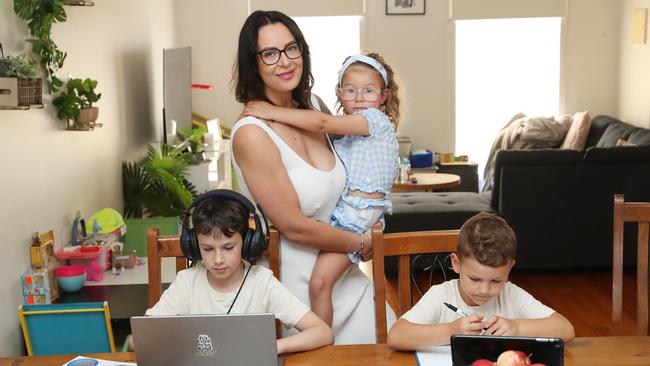
Cooped up with three kids during the world’s longest lockdown, Melbourne mother Anueta Madison-Vanderbuilt is counting down the days until her children can go back to school.
The single parent knew teenagers who, tragically, killed themselves during the pandemic, and is more fearful of the mental health hazards of keeping children at home than the risk of them catching the Covid-19 virus.
“It’s scary,’’ says the small business owner. “The idea floating around that they may not go back to school if the virus continues is very frightening, not from the medical side so much as the mental health side.
“For two years the kids have been suffering – so many kids have become introverted, scared and shy.’’
As schooling systems struggle to manage head-spinning changes to Covid-19 rules, many parents are despairing over possible delays to classrooms reopening. Already Queensland has postponed the start of term one for a fortnight, and South Australia is staggering the return to school for various year levels.
Open-air classrooms on verandas or under trees, air filters, rapid testing and hybrid models of classrooms and remote learning are the most likely scenarios as education departments rush to rewrite the school rules to deal with the wildfire Omicron outbreak.
Despite the eagerness to resume children’s education, many families are reluctant to send kids to school at the peak of a pandemic they have been conditioned to fear.
The Parenthood, an advocacy group for Australian parents, says the changing rules are confusing and distressing for families.
“Parents are unsure of what to do and children are asking lots of questions,’’ The Parenthood executive director Georgie Dent tells Inquirer.
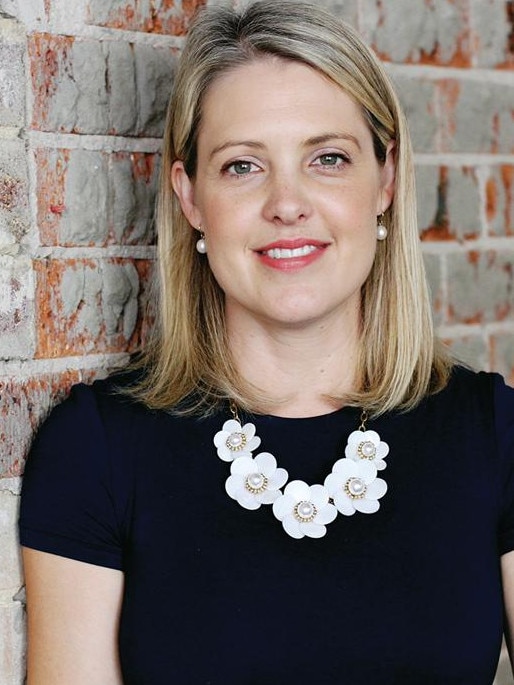
“Many parents are really concerned about children being back in the classroom at the peak of the outbreak, while others are concerned about the mental health impact and do want their kids go back to school.
“Before Christmas hundreds of cases in a single day were of really serious concern and now we’ve ballooned to 100,000 cases a day and (politicians) are saying that’s OK – that’s a really big leap.’’
Teachers, burnt out by two years of on-off remote teaching, are threatening classroom boycotts unless governments do more to protect them in their workplace.
Scott Morrison invoked the wrath of teacher unions when he revealed on Thursday that national cabinet had exempted teachers and childcare workers from close contact isolation requirements.
Promising a more detailed back-to-school plan next week, he hinted that teachers would be given access to free rapid antigen (RAT) tests for regular surveillance testing of Covid-19.
Morrison warned that school closures would worsen the 10 per cent workforce absenteeism rate to 15 per cent, as parents would be forced to stay home to look after children.
“Schools open means shops open,’’ Morrison declared after the national cabinet meeting. “Schools open means hospitals are open. It means aged-care facilities are open. It means essential services and groceries are on the shelves.
“Childcare and schools are essential and should be the first to open and last to close where possible.’’
With 500 childcare centres closed this week due to Omicron outbreaks, the prognosis looks bleak for a seamless return to school at the end of the month. Only 6 per cent of primary school students have had their first dose of Covid-19 vaccines, although 75 per cent of high school students are double-jabbed.
Australian Education Union (AEU) president Correna Haythorpe is furious that teachers are being treated like “babysitters’’ so other parents can go to work.
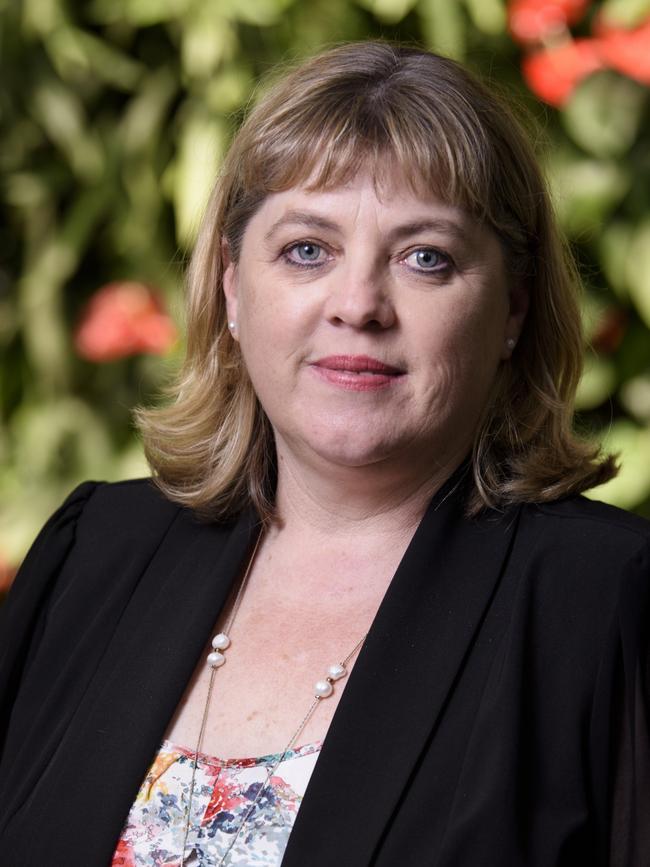
“The vast majority of children will not be vaccinated for the return to school and that is of deep concern to our members because Omicron is highly transmissible,’’ she tells Inquirer.
“A two-week delay may not be long enough, and some states may have to shift to remote learning.’’
The union is urging teachers to stay home if they don’t feel safe working in classrooms.
“We will be saying to members that if you feel unsafe or uncertain or worried you are potentially putting other people at risk, you should not be going into a school environment,’’ she says.
“You should still be paid. If you are a close contact but not ill, you can work remotely. It’s not industrial action – members have sick leave and so on they can access.’’
The union’s advice flies in the face of national cabinet’s decision to lump teachers in with other essential workers who can continue working even if a household member is sick with Covid-19, provided they have no symptoms and a negative test.
Haythorpe says teachers should have access to free rapid tests, which are now even harder to find than masks were at the start of the pandemic.
“Teachers have worked so hard to provide education, whether remote or face-to-face, to put the students first,’’ she says.
“To be told the reason schools need to be open is for workforce considerations, rather than prioritising the education of our young people safely, is deeply offensive.
“You can’t on the one hand say teachers are essential and must go to work, and on the other hand not provide them with the essential tools that are needed to ensure their safety and the safety of students in their care.’’
National cabinet is working on the fine details of a back-to-school operational plan to cover potential school closures, infection control, mask wearing and surveillance testing for Covid-19.
Under the plan, schools and childcare centres are deemed to be essential “and should be the first to open and the last to close wherever possible in outbreak situations, with face-to-face learning prioritised’’.
State leaders have agreed that “no vulnerable child or child of an essential worker is turned away’’ from classrooms, implying that even if schools shut down, a skeleton teaching staff will be required to supervise children onsite.
As always, the states are going their own way: Victoria and NSW are adamant that schools will open on schedule but Queensland has postponed term one by two weeks, with Year 11 and 12 students starting remote learning a week before other kids head back to class.
South Australia is staggering return dates for different year levels, and is “looking closely’’ at the use of air purifiers in schools as it works to improve natural ventilation in classrooms.
A NSW Education spokesperson says that schools will be “made Covid-19 safe through a combination of physical distancing, mask wearing, strict hygiene practices and frequent cleaning of schools’.’ Rapid antigen test kits will also be used.
Confusion is rife.
“How are staff to access rapid antigen tests?’’ asks Independent Education Union acting NSW/ACT secretary Pam Smith.
“Who pays? How will testing be administered and monitored?”
Queensland Education has 54 “frequently asked questions” on its website, including: “Do students have to be vaccinated?” (No) “Can sport take place?” (Yes) and “What if my child is unwell?” (Stay home and seek medical advice).
Even if schools stay open, the likelihood of class closures or mergers is high as teachers catch the virus that has created a staffing shortage in every other industry.
Vaccine mandates are exacerbating the problem, with roughly one in 10 teachers refusing or unable to get the jab and teach face to face.
Education Queensland insists it has enough vaccinated relief teachers to plug the gap, with 5000 on standby.
Dent says families must have easy and affordable access to vaccines and rapid antigen tests when their kids go to back to class.
“We all did what was asked of us – we isolated, we stayed home, we got vaccinated and we tried to home-school,’’ she says.
“People are feeling completely abandoned at the moment. We had an exponential growth in cases – all of this was foreseeable and we’ve been let down badly.’’
Dent, a lawyer, thinks it unlikely any schools will mandate Covid-19 vaccines for kids.
“It is not reasonable to punish a child and deprive them of an education because their parents made a decision about vaccination,’’ she says.
As parents panic over the paucity of vaccines, or worry about vaccine safety, medical experts are calling for calm.
A letter to the Prime Minister, premiers and chief ministers this week, signed by 26 of the nation’s most eminent paediatricians, infectious disease researchers and child and adolescent psychiatrists, insists that it is “safe to allow schools to be open for face-to-face learning’’.
“Our own Australian data confirms Covid-19 is a mild disease in children, that the few hospitalisations are short-lived, and that the overwhelming majority of children recover from the virus without adverse effect,’’ the letter states.
“There is no medical case for face-to-face learning to be suspended awaiting the vaccination of 5-11-year-old children, although all children should be offered access as soon as practical.’’
The experts describe children as the “lost voices” of the pandemic.
“A delay in returning to in-person learning puts children’s mental health at risk, with additional increases in the risk of child abuse, obesity and delayed social and emotional development,’’ they state.
The letter’s signatories include Professor David Isaacs, a paediatric infectious disease specialist at the Children’s Hospital, Westmead and the University of Sydney, professor of psychiatry and former Australian of the Year Patrick McGorry, and Professor of Paediatric Infectious Diseases Robert Booy.
Former national children’s commissioner Megan Mitchell and Professor Sharon Goldfeld, who runs the Centre for Community Child Health at the Royal Children’s Hospital in Melbourne, also signed the letter to leaders.
Goldfeld, director of population health at the Murdoch Children’s Research Institute and a former principal medical adviser to Victoria’s Department of Education, is adamant that schools can reopen safely and suggests a short-term “hybrid’’ teaching model combining classroom and home-schooling.
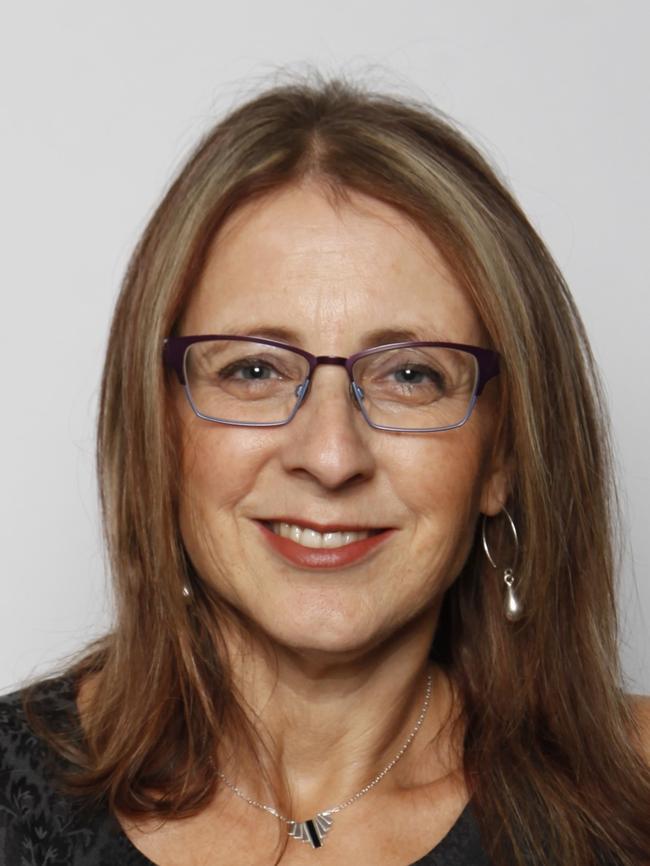
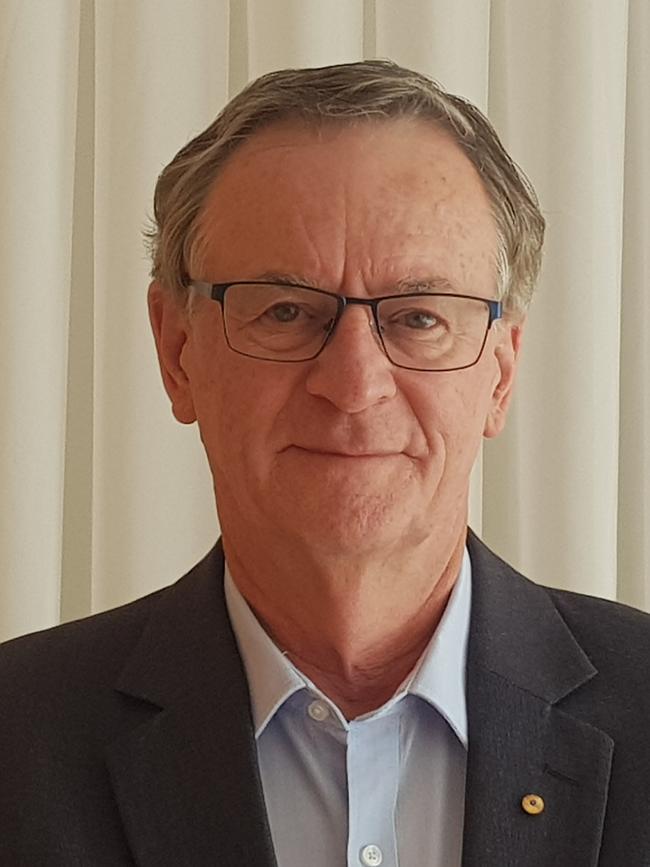
“Getting kids back to school is so important,’’ she tells Inquirer.
“We need stopgap measures to allow teachers who are furloughing at home to teach, and for children who are at home to learn.’’
Goldfeld says vaccination, mask wearing and ventilation are important ways to stop the spread of Omicron in schools, combined with rapid antigen testing of teachers exposed to the virus.
Eminent microbiologist Professor Peter Collignon, who also penned the letter to the nation’s leaders, understands that teachers and parents are nervous about returning to class at the peak of the pandemic.
But he explains that young children are less likely to catch and spread the virus because pre-pubescent children lack the ACE2 receptor, a protein the coronavirus latches on to to infect human cells.
“What we’ve got out of perspective is that this virus is behaving differently to influenza, where children were four or five times more likely to get it and spread it than adults,’’ Collignon tells Inquirer.
“I wouldn’t panic if you can’t get a child vaccinated in the two weeks before school starts, because the risk to them is very, very low.
“If my child had neurological or major underlying medical problems, that’s a different issue, but if you’re under the age of 40, your chance of coming to grief is really low. For teachers, having lunch in the tea room is more of a danger than the classroom, in all probability.’’
Collignon advises teachers and students worried about catching Covid-19 to wear masks as well as glasses or safety goggles or a face shield to prevent infection through the eyes.
Fresh air is vital, he says, and classes should be held on verandas or with doors and windows open where possible.
“People want zero Covid and zero risk but that’s just impossible,’’ Collignon says.
“If we don’t open schools now, this issue is not going to go away – Covid is here for years so unless you’re going to become a hermit, I can’t see what else you can do.
“If bars are open, how can we justify closing schools?’’


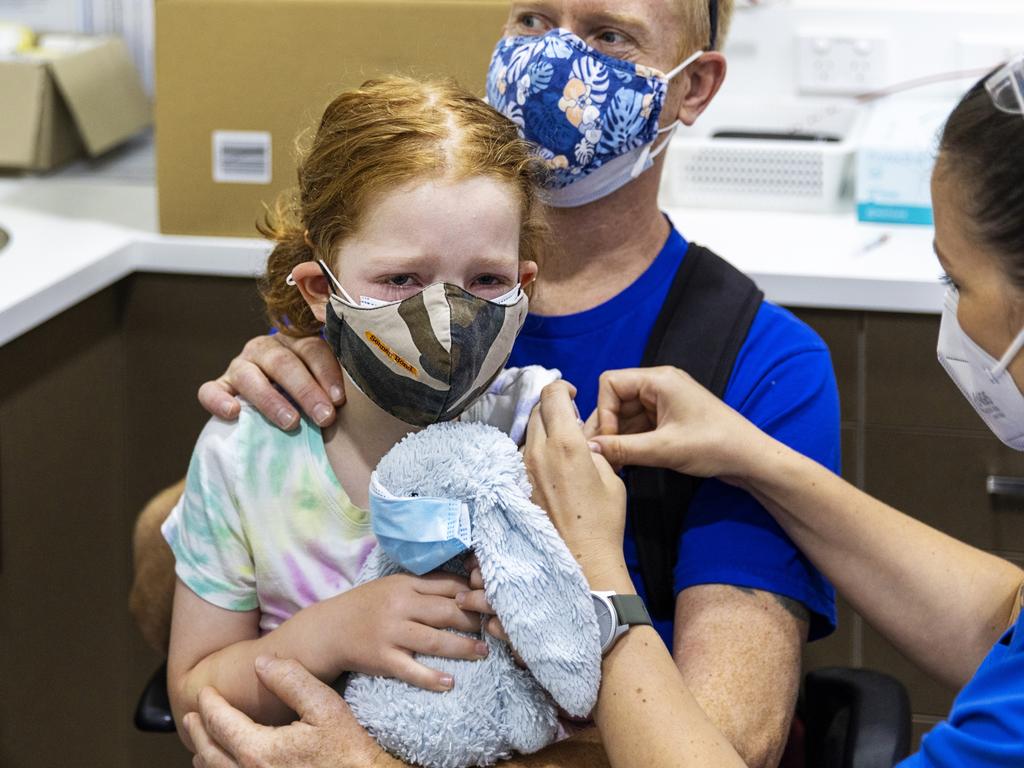
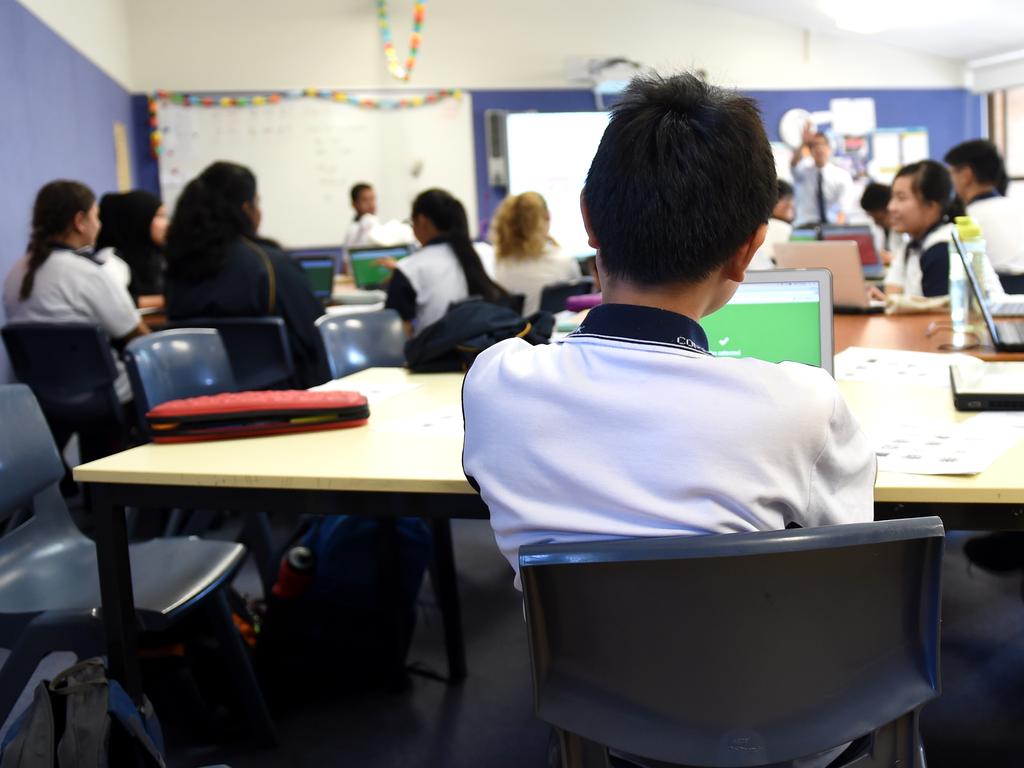



To join the conversation, please log in. Don't have an account? Register
Join the conversation, you are commenting as Logout